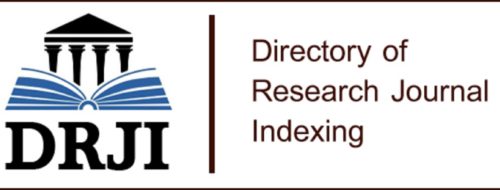TAMİRDE DIŞKAYNAĞIN VE ÖDEMEDE GECİKMENİN KUSURLU ÜRÜNLER ÜRETEN BİR ÜRETİM SİSTEMİNİN PERFORMANSI ÜZERİNDEKİ ETKİSİ
Abstract
Ödemede belirli bir süre gecikmeye izin verilmesi varsayımının toplam maliyet üzerindeki etkisi birçok üretim stok kontrol modelinde ele alınmıştır. Bu modellerde, ödemede izin verilen gecikme süresinin alıcının satın alma kararını etkilediği bu durumun da stok maliyetlerini önemli ölçüde azalttığı sonucuna varılmıştır. Stok maliyetlerini azaltmanın bir diğer yolu da üretim sırasında üretilen kusurlu ürünlerin tamir edilmesidir. Bu çalışmada, kusurlu ürünlerin dışkaynak kullanılarak tamiri ve ödemede gecikmeye izin verilmesi varsayımları altında bir ekonomik üretim miktarı modeli geliştirilmiştir. Birim zamandaki toplam maliyeti enküçükleyecek optimum üretim miktarı önerilen bir algoritma yardımıyla elde edilmiştir. Sonuçları göstermek amacıyla duyarlılık analizine sahip iki sayısal örnek verilmiştir. Sayısal analizler, kusurlu ürünlerin dışkaynak tamirinin aynı üretim sisteminde tamirine göre kısmen daha avantajlı olduğunu göstermiştir.
References
- Axsäter, S. (2006). Inventory control. New York: Springer Science + Business Media.
- Cárdenas-Barrón, L. E. (2009). Economic production quantity with rework process at a single-stage manufacturing system with planned backorders. Computers & Industrial Engineering, 57, 1105-1113.
- Cárdenas-Barrón, L. E., Chung, K. J., ve Treviño-Garza, G. (2014). Celebrating a century of the economic order quantity model in honor of Ford Whitman Harris. International Journal of Production Economics, 155, 1-7.
- Chang, C. T. (2004). An EOQ model with deteriorating items under inflation when supplier credits linked to order quantity. International Journal of Production Economics, 88(3), 307-316.
- Cheng, T. C. E. (1991). An economic order quantity model with demand-dependent unit production cost and imperfect production processes. IIE Transactions, 23(1), 23-28.
- Chung, K. J. ve Liao, J. J. (2004). Lot-sizing decisions under trade credit depending on the ordering quantity. Computers & Operations Research, 31(6), 909-928.
- Goyal, S. K. (1985). Economic order quantity under conditions of permissible delay in payments. Journal of the Operational Research Society, 36(4), 335-338.
- Hayek, P. A. ve Salameh, M. K. (2001). Production lot sizing with the reworking of imperfect quality items produced. Production Planning & Control, 12(6), 584-590.
- Huang, Y. F. (2003). Optimal retailer’s ordering policies in the EOQ model under trade credit financing. Journal of the Operational Research Society, 54(9), 1011-1015.
- Huang, Y. F. (2007). Economic order quantity under conditionally permissible delay in payments. European Journal of Operational Research, 176(2), 911-924.
- Jamal, A. M. M., Sarker, B. R., ve Mondal, S. (2004). Optimal manufacturing batch size with rework process at a single-stage production system, Computers & Industrial Engineering, 47(1), 77-89.
- Jamal, A. M. M., Sarker, B. R., ve Wang, S. (1997). An ordering policy for deteriorating items with allowable shortage and permissible delay in payment. Journal of the Operational Research Society, 48(8), 826-833.
- Jaber, M. Y., Zanoni, S., ve Zavanella, L. E. (2014), “Economic order quantity models for imperfect items with buy and repair options”, International Journal of Production Economics, 155, 126-131.
- Mokhtari, H. (2019). Optimal lot size in a manufacturing system with imperfect raw materials and defective finished products. Scientia Iranica (Transactions E: Industrial Engineering), 26(4), 2561-2578.
- Ouyang, L. Y. (2015). An integrated inventory model with capacity constraint and order-size dependent trade credit. Computers & Industrial Engineering, 84, 133-143.
- Ouyang, L. Y. ve Chang, C. T. (2013). Optimal production lot with imperfect production process under permissible delay in payments and complete backlogging. International Journal of Production Economics, 144(2), 610-617.
- Ouyang, L. Y., Wu, K. S., ve Yang, C. T. (2006). A study on an inventory model for non-instantaneous deteriorating items with permissible delay in payments. Computers & Industrial Engineering, 51(4), 637-651.
- Porteus, E. L. (1986). Optimal lot sizing, process quality improvement and setup cost reduction. Operations Research, 34, 137-144.
- Salameh, M. K. ve Jaber, M. Y. (2000). Economic production quantity model for items with imperfect quality. International Journal of Production Economics, 64 (1-3), 59-64.
- Sarkar, B. (2012). An EOQ model with delay in payments and stock dependent demand in the presence of imperfect production. Applied Mathematics and Computation, 218(17), 8295-8308.
- Sarkar, B., Cárdenas-Barrón, L. E., Sarkar, M. ve Singgih, M. L. (2014). An economic production quantity model with random defective rate, rework process and backorders for a single stage production system. Journal of Manufacturing Systems, 33(3), 423-435.
- Taft, E. W. (1918). The most economical production lot. Iran Age, 1410-1412.
- Taleizadeh, A. A., Sari-Khanbaglo, M. P., ve Cárdenas-Barrón, L. E. (2019). Outsourcing rework of imperfect items in the economic production quantity (EPQ) inventory model with backordered demand”, IEEE Transactions on Systems, Man, and Cybernetics: Systems, 49(12), 2688-2699.
- Tiwari, S., Ahmed, W., ve Sarkar, B. (2018). Multi-item sustainable green production system under trade-credit and partial backordering. Journal of Cleaner Production, 204, 82-95.
- Tsao, Y. C., Chen, T. H., ve Huang, S. M. (2011). A production policy considering reworking of imperfect items and trade credit. Flexible Services and Manufacturing Journal, 23(1), 48-63.
- Tsao, Y. C., Zhang, Q., Chang, F. C., ve Vu-Thuy, L. (2017). An imperfect production model under Radio Frequency Identification adoption and trade credit. Applied Mathematical Modelling, 42, 493-508.
THE JOINT EFFECT OF OUTSOURCED REPAIR AND PERMISSIBLE DELAY IN PAYMENT ON THE PERFORMANCE OF AN IMPERFECT PRODUCTION INVENTORY SYSTEM
Abstract
There have been many production inventory control problems addressing the effect of permissible delay in payment on total cost. These models concluded that permissible delay in payment affects buyers' purchasing decisions, leading to a significant reduction in inventory costs. Another way to reduce inventory costs is to repair sub-standard items produced during production. This study develops a mathematical model for the economic production quantity, assuming outsourcing of repairs to sub-standard items and permissible delay in payment. An algorithm is proposed to obtain the optimum production quantity, designed to minimise the total cost per unit time. The results are illustrated through two numerical examples, accompanied by severity analyses. These numerical analysis show that outsourcing of repairs to sub-standard items is partially more cost-effective than repairing them in the original production system.
Keywords
inventory economic production quantity sub-standard items repair outsourcing permissible delay in payment
References
- Axsäter, S. (2006). Inventory control. New York: Springer Science + Business Media.
- Cárdenas-Barrón, L. E. (2009). Economic production quantity with rework process at a single-stage manufacturing system with planned backorders. Computers & Industrial Engineering, 57, 1105-1113.
- Cárdenas-Barrón, L. E., Chung, K. J., ve Treviño-Garza, G. (2014). Celebrating a century of the economic order quantity model in honor of Ford Whitman Harris. International Journal of Production Economics, 155, 1-7.
- Chang, C. T. (2004). An EOQ model with deteriorating items under inflation when supplier credits linked to order quantity. International Journal of Production Economics, 88(3), 307-316.
- Cheng, T. C. E. (1991). An economic order quantity model with demand-dependent unit production cost and imperfect production processes. IIE Transactions, 23(1), 23-28.
- Chung, K. J. ve Liao, J. J. (2004). Lot-sizing decisions under trade credit depending on the ordering quantity. Computers & Operations Research, 31(6), 909-928.
- Goyal, S. K. (1985). Economic order quantity under conditions of permissible delay in payments. Journal of the Operational Research Society, 36(4), 335-338.
- Hayek, P. A. ve Salameh, M. K. (2001). Production lot sizing with the reworking of imperfect quality items produced. Production Planning & Control, 12(6), 584-590.
- Huang, Y. F. (2003). Optimal retailer’s ordering policies in the EOQ model under trade credit financing. Journal of the Operational Research Society, 54(9), 1011-1015.
- Huang, Y. F. (2007). Economic order quantity under conditionally permissible delay in payments. European Journal of Operational Research, 176(2), 911-924.
- Jamal, A. M. M., Sarker, B. R., ve Mondal, S. (2004). Optimal manufacturing batch size with rework process at a single-stage production system, Computers & Industrial Engineering, 47(1), 77-89.
- Jamal, A. M. M., Sarker, B. R., ve Wang, S. (1997). An ordering policy for deteriorating items with allowable shortage and permissible delay in payment. Journal of the Operational Research Society, 48(8), 826-833.
- Jaber, M. Y., Zanoni, S., ve Zavanella, L. E. (2014), “Economic order quantity models for imperfect items with buy and repair options”, International Journal of Production Economics, 155, 126-131.
- Mokhtari, H. (2019). Optimal lot size in a manufacturing system with imperfect raw materials and defective finished products. Scientia Iranica (Transactions E: Industrial Engineering), 26(4), 2561-2578.
- Ouyang, L. Y. (2015). An integrated inventory model with capacity constraint and order-size dependent trade credit. Computers & Industrial Engineering, 84, 133-143.
- Ouyang, L. Y. ve Chang, C. T. (2013). Optimal production lot with imperfect production process under permissible delay in payments and complete backlogging. International Journal of Production Economics, 144(2), 610-617.
- Ouyang, L. Y., Wu, K. S., ve Yang, C. T. (2006). A study on an inventory model for non-instantaneous deteriorating items with permissible delay in payments. Computers & Industrial Engineering, 51(4), 637-651.
- Porteus, E. L. (1986). Optimal lot sizing, process quality improvement and setup cost reduction. Operations Research, 34, 137-144.
- Salameh, M. K. ve Jaber, M. Y. (2000). Economic production quantity model for items with imperfect quality. International Journal of Production Economics, 64 (1-3), 59-64.
- Sarkar, B. (2012). An EOQ model with delay in payments and stock dependent demand in the presence of imperfect production. Applied Mathematics and Computation, 218(17), 8295-8308.
- Sarkar, B., Cárdenas-Barrón, L. E., Sarkar, M. ve Singgih, M. L. (2014). An economic production quantity model with random defective rate, rework process and backorders for a single stage production system. Journal of Manufacturing Systems, 33(3), 423-435.
- Taft, E. W. (1918). The most economical production lot. Iran Age, 1410-1412.
- Taleizadeh, A. A., Sari-Khanbaglo, M. P., ve Cárdenas-Barrón, L. E. (2019). Outsourcing rework of imperfect items in the economic production quantity (EPQ) inventory model with backordered demand”, IEEE Transactions on Systems, Man, and Cybernetics: Systems, 49(12), 2688-2699.
- Tiwari, S., Ahmed, W., ve Sarkar, B. (2018). Multi-item sustainable green production system under trade-credit and partial backordering. Journal of Cleaner Production, 204, 82-95.
- Tsao, Y. C., Chen, T. H., ve Huang, S. M. (2011). A production policy considering reworking of imperfect items and trade credit. Flexible Services and Manufacturing Journal, 23(1), 48-63.
- Tsao, Y. C., Zhang, Q., Chang, F. C., ve Vu-Thuy, L. (2017). An imperfect production model under Radio Frequency Identification adoption and trade credit. Applied Mathematical Modelling, 42, 493-508.
Details
| Primary Language | Turkish |
|---|---|
| Subjects | Business Administration |
| Journal Section | Makaleler |
| Authors | |
| Early Pub Date | August 18, 2023 |
| Publication Date | August 31, 2023 |
| Acceptance Date | May 12, 2023 |
| Published in Issue | Year 2023 Issue: 65 |













ERÜ İktisadi ve İdari Bilimler Fakültesi Dergisi 2021 | iibfdergi@erciyes.edu.tr
Bu eser Creative Commons Atıf-Gayri Ticari-Türetilemez 4.0 Uluslararası Lisansı ile lisanslanmıştır.



